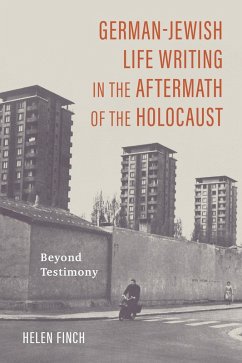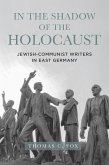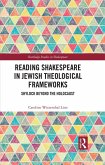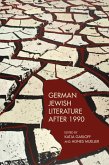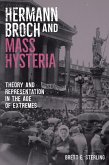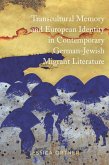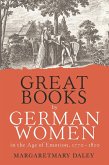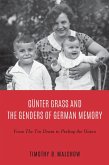Shows how Adler, Wander, Hilsenrath, and Klüger intertwine transgressive political criticism with the shadow of trauma, revealing new perspectives on canon formation and exclusion in postwar German literature.
How did German-speaking Holocaust survivors pursue literary careers in an often-indifferent postwar society? How did their literary life writings reflect their postwar struggles? This monograph focuses on four authors who bore literary witness to the Shoah - H. G. Adler, Fred Wander, Edgar Hilsenrath, and Ruth Klüger. It analyzes their autofictional, critical, and autobiographical works written between the early 1950s and 2015, which depict their postwar experiences of writing, publishing, and publicizing Holocaust testimony.
These case studies shed light on the devastating aftermaths of the Holocaust in different contexts. Adler depicts his attempts to overcome marginalization as a writer in Britain in the 1950s. Wander reflects on his failure to find a home either in postwar Austria or in the GDR. Hilsenrath satirizes his struggles as an emigrant to the US in the 1960s and after returning to Berlin in the 1980s. Finally, in her 2008 memoir, Ruth Klüger follows up her earlier, highly impactful memoir of the concentration camps by narrating the misogyny and antisemitism she experienced in US and German academia. Helen Finch analyzes how these under-researched texts intertwine transgressive political criticism with the shadow of trauma. Drawing on scholarship on Holocaust testimony, transnational memory, and affect theory, her book reveals new perspectives on canon formation and exclusion in postwar German literature.
How did German-speaking Holocaust survivors pursue literary careers in an often-indifferent postwar society? How did their literary life writings reflect their postwar struggles? This monograph focuses on four authors who bore literary witness to the Shoah - H. G. Adler, Fred Wander, Edgar Hilsenrath, and Ruth Klüger. It analyzes their autofictional, critical, and autobiographical works written between the early 1950s and 2015, which depict their postwar experiences of writing, publishing, and publicizing Holocaust testimony.
These case studies shed light on the devastating aftermaths of the Holocaust in different contexts. Adler depicts his attempts to overcome marginalization as a writer in Britain in the 1950s. Wander reflects on his failure to find a home either in postwar Austria or in the GDR. Hilsenrath satirizes his struggles as an emigrant to the US in the 1960s and after returning to Berlin in the 1980s. Finally, in her 2008 memoir, Ruth Klüger follows up her earlier, highly impactful memoir of the concentration camps by narrating the misogyny and antisemitism she experienced in US and German academia. Helen Finch analyzes how these under-researched texts intertwine transgressive political criticism with the shadow of trauma. Drawing on scholarship on Holocaust testimony, transnational memory, and affect theory, her book reveals new perspectives on canon formation and exclusion in postwar German literature.
Dieser Download kann aus rechtlichen Gründen nur mit Rechnungsadresse in A, D ausgeliefert werden.

